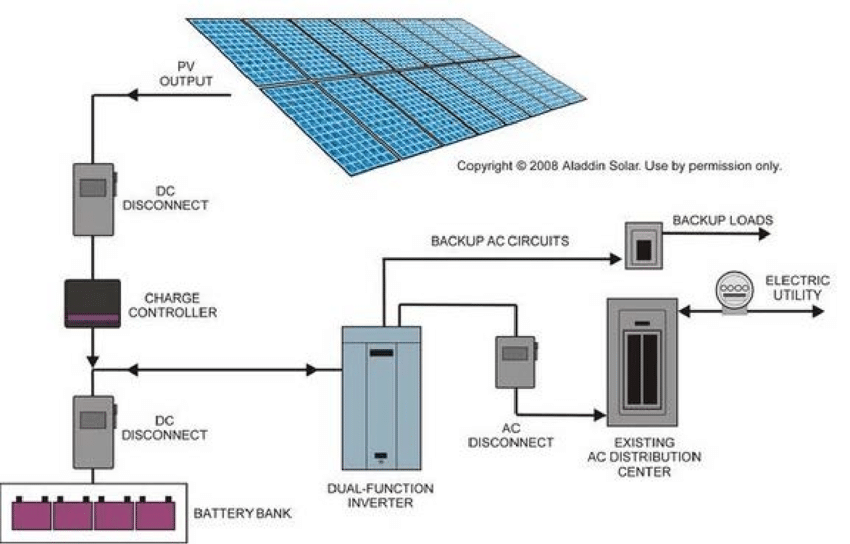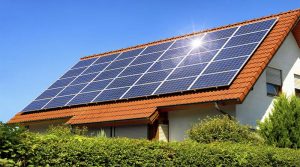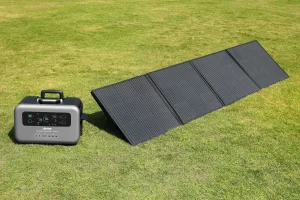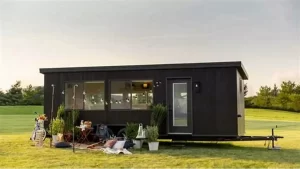Unlocking Solar Potential: The Role of Grid-Tied Inverters in Home Energy Systems
The global shift towards renewable energy has made solar power systems an increasingly popular choice for homeowners seeking to reduce their carbon footprint and energy bills. At the heart of these systems are photovoltaic cells, commonly known as solar panels, which harness the sun’s energy and convert it into direct current (DC) electricity. However, for this energy to be usable by our homes and appliances, it must be transformed into alternating current (AC) electricity. This is where grid-tie inverters come in, playing a pivotal role in the modern home energy system.
The Necessity of Inverters Inverters are the unsung heroes of solar energy systems, bridging the gap between the DC electricity generated by solar panels and the AC electricity that powers our homes. They are essential components that not only convert the electricity but also ensure it is delivered efficiently and safely.
Grid-Tied Inverters: The Link to the Grid Grid-tie inverters are designed to integrate solar power systems with the utility grid, allowing for a seamless flow of electricity. When the sun is shining, these inverters convert the DC power from solar panels into AC power and feed it into the grid. This process enables homeowners to use the electricity generated during the day and, through net metering, even earn credits for any surplus energy they send back to the grid.

Advantages of Grid-Tied Inverters One of the significant advantages of grid-tie inverters is their cost-effectiveness. By eliminating the need for expensive battery storage systems, these inverters reduce the overall installation and maintenance costs associated with solar power systems. Additionally, their compatibility with net metering programs provides homeowners with financial incentives, making solar power an economically viable option.
Limitations and Considerations Despite their benefits, grid-tie inverters do have limitations. They are dependent on the grid, shutting down during outages to prevent feedback into the power lines, which could endanger line workers. This means that during a power cut, a grid-tied solar system cannot provide backup power to the home.
Grid-Interactive Inverters: A Step Beyond For those seeking greater energy independence, grid-interactive inverters offer a solution. Also known as hybrid inverters, these devices can operate in both grid-connected and stand-alone modes, providing backup power during outages and allowing for the storage of excess energy in battery systems.
Conclusion In conclusion, grid-tie inverters are crucial for unlocking the full potential of solar power systems in home energy systems. They not only facilitate the conversion of DC to AC electricity but also enable homeowners to participate in net metering programs, reducing their reliance on traditional energy sources. As technology advances and the demand for sustainable energy solutions grows, the role of grid-tie inverters will continue to be vital in our transition to a greener future. For those considering solar power, understanding the function and benefits of grid-tie inverters is the first step towards a more sustainable and energy-independent home.
Contact us
- Email:[email protected]
- Tel: +86 13651638099
- Address: 333 Fengcun Road, Fengxian District, Shanghai
Get A Quote Now!
Related product links are available directly
Site storage products:Site storage products 归档 – (energystoragecontainer.com)
Lithium Battery:Lithium Battery 归档 – (energystoragecontainer.com)
Read more

Innovative Technologies for Solar Energy Systems: Enhancing Site Energy Self-Sufficiency
From high-efficiency solar panels to smart tracking systems, the latest technological advances make it possible for sites, whether residential, commercial, or industrial, to achieve substantial energy self-sufficiency.

Household Energy Storage All-in-One Machine: How to Choose the Right Storage Capacity
Household energy storage systems are becoming as essential as home appliances, making power outages and energy independence manageable.

Power Selection Guide: How to Choose the Right Backup Power Supply for Your Home
With unpredictable power outages and an increasing demand for reliable home backup power supplies, choosing the best option for your household is more important than ever.

Container Base Station Energy Room: Dual Play of Thermal Management and Efficiency
In today’s rapidly evolving world of energy storage, container-based energy storage solutions have become the backbone of modern power supply infrastructure. These systems are commonly used for communication base stations, smart cities, and power distribution networks, ensuring a stable power supply in edge locations.
